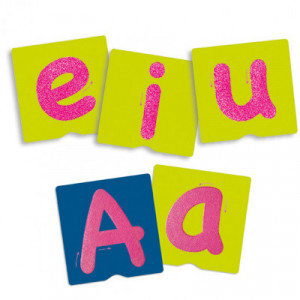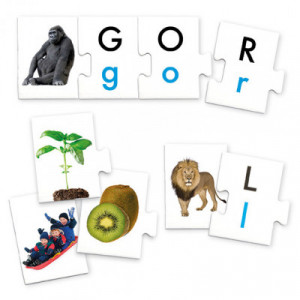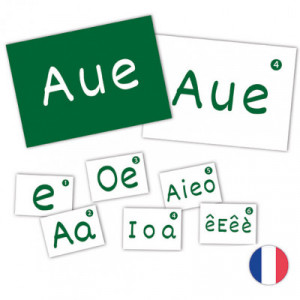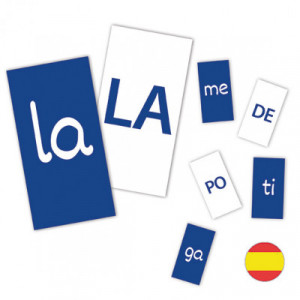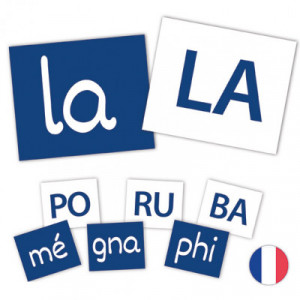Games to learn to read
Learning to read is a progressive process that begins at age 3 or 4. First contacts are made through pre-writing games to recognize letter shapes.
Games should be adapted to the child's learning level, whether he or she has learning difficulties, special needs, or is progressing at an appropriate pace in reading.
In this selection you will find pre-writing games, letter games, word formation games and association games. All of them so that you can start reading, or improve reading in a simple and fun way with your little one.

Lecto-bits cards with phonetic syllables for learning to read and improving reading skills
Lecto-bits de syllabes simples pour soutenir la parole et améliorer la lecture
When children are taught to read, they receive the main tool for expanding their world and how to relate to it. Thanks to reading, they are able to decipher more complex messages than those transmitted by speech. According to recent studies, there are similarities between brain reactions when reading about something and when a person experiences that something in reality.
Reading games enhance learning by motivating children and consolidating knowledge already acquired. Through reading games, children learn to see it as a pleasure and not reject it as just another school assignment.
Games to learn to read
Games to improve reading comprehension provide a playful component to learning. Among them are the following:
- Phrase games with messy words that children should order.
- Storytelling games. The child is given a short text with some information about a story and can expand on it. Another mechanic of the game is to show images to the child and he has to figure out which ones are related to the story.
In addition, Akros' stories have audio support, making the experience even more interactive. The reading and play of parents with their children is fundamental for the development of this capacity of the children.
Syllabic reading method
The analytical or syllabic method was created so that the child can work progressively on the knowledge of the alphabet and then get to know the major units such as syllables and words. The method adds a dynamic component to the process, while stimulating the child's logical capacity.
Thanks to this didactic approach, the child learns to break down words into their different parts, improves spelling and associates a corresponding phoneme with each grapheme. In time, the child himself becomes aware of the possible combinations of letters and their corresponding phonemes.
The analytical method may seem to have a slower learning curve, but it ensures that the child understands the meaning of what he or she is reading. Another didactic approach, the global method, defends reading speed, without taking into account possible spelling mistakes due to the speed of the learning process. There is also a mixed method that combines both approaches.
In the Akros store you can find educational games to help your children learn to read, as well as to encourage the development of other skills, such as speech and pronunciation, fine motor skills or attention, among others.



